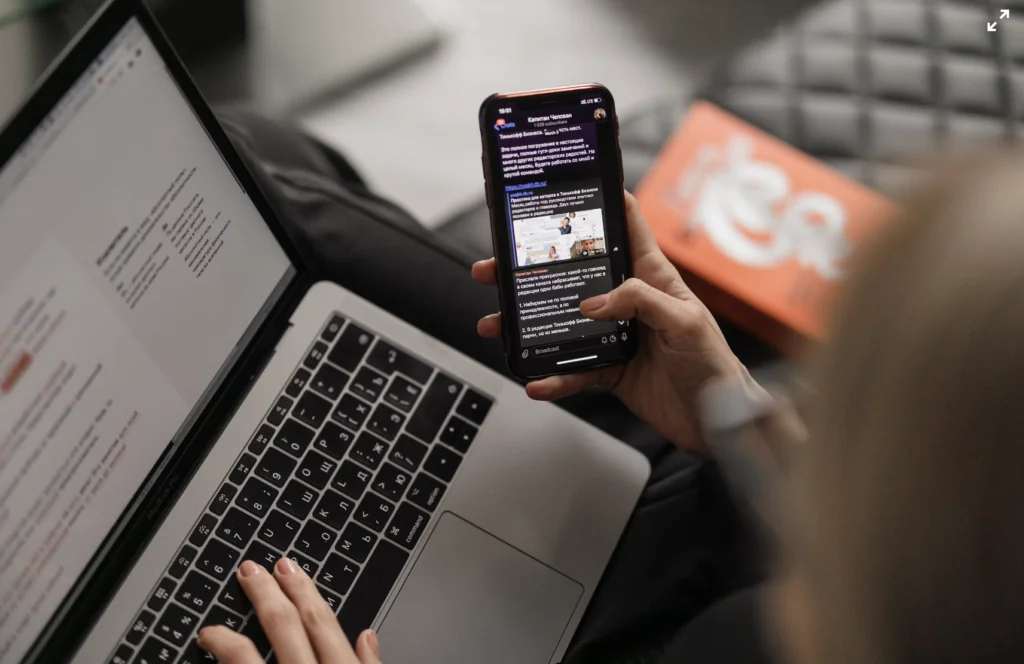Have you ever missed a crucial exam by accident? You’re not alone. A recent Reddit post by a distressed college student who overslept and missed their English final has triggered a flurry of advice and personal stories. This article offers practical tips for anyone in a similar bind on how to emerge unscratched.

✅ AI Essay Writer ✅ AI Detector ✅ Plagchecker ✅ Paraphraser
✅ Summarizer ✅ Citation Generator
Key Takeaways
- By admitting to mistakes, students establish trust with educators and demonstrate maturity, which can lead to more lenient responses and a culture of integrity in educational settings.
- Accountability is crucial for personal development. It nshows maturity and helps students learn from their mistakes.
- Clear, respectful, and honest communication with educators after missing an exam or other mistake is important.
A college student found themselves in a tough spot when they missed a crucial final exam. They shared their story on Reddit, explaining how they accidentally slept through their English exam, mistakenly thinking it was scheduled for the next week.
“I’m freaking out right now, I had no idea there was going to be an exam today, I put it in my calendar for next week. So I overslept for my English class and missed the final exam, checked the website and boom i got a 0 on an exam I didn’t know was supposed to be happening”
Faced with the reality of a zero score and unsure of what to do, they turned to the Reddit community for advice. This post not only highlights a common predicament faced by students but also opens up a wider conversation about handling such stressful situations in college.
The Power of Honesty
In education, where integrity is as important as knowledge, the impact of honesty cannot be overstated. This is vividly illustrated in a Reddit comment where a user advised the distressed student to admit the mistake of noting the wrong date for the exam.
Honesty is the best policy. You put the date on your calendar incorrectly and overslept. It may not change anything and you may not get the retake, but taking accountability and owning up to what you did is important. It’s also time to start doublechecking other dates you’ve put on your calendar and setting a check for yourself to ensure you get up, like a second alarm about five minutes after the first.
Such an act of honesty, though seemingly small, can have far-reaching implications.
✅ ARGUMENTS “FOR”
Firstly, it establishes a foundation of trust between students and educators. When a student is open about a mistake, it not only shows respect for the professor’s time and effort but also demonstrates a maturity that goes beyond the confines of a classroom. This level of sincerity can pave the way for more understanding and lenient responses from educators, who are often willing to accommodate genuine mistakes.
Moreover, embracing honesty promotes a culture of integrity. It sets a precedent for peers, showcasing that owning up to one’s errors is not only the right thing to do but is also valued in a learning environment. This practice of honesty builds character, preparing students for real-world scenarios where integrity is paramount.

In the long run, students who practice honesty cultivate a reputation for reliability and trustworthiness. These traits are highly sought after in professional settings, indicating that the lessons learned from such experiences extend well beyond academic achievements. By choosing honesty, students are investing in a future where their word holds weight, opening doors to opportunities grounded in mutual respect and ethical behavior.
❌ ARGUMENTS “AGAINST”
| Fear of negative consequences | For a student, admitting to oversleeping and missing an exam could result in a zero with no chance for a makeup, potentially affecting their grade and academic standing. |
| Perception of unreliability | Admitting to oversleeping for an exam could lead professors to view the student as irresponsible or not serious about their studies. This perception might affect the immediate situation and also the long-term relationship between the student and the professor, possibly impacting future interactions, recommendations, or opportunities. |
| Cultural and institutional norms | In some academic cultures or institutions, there’s an unspoken rule that certain excuses are more acceptable than others. For instance, claiming a misunderstanding of the exam date might be seen as more acceptable than admitting to oversleeping. In such environments, students might feel pressured to align their excuses with these norms to avoid judgment or negative repercussions. |
| Stress and mental health considerations | Students might opt against complete honesty due to the immense pressure and stress they already face. |
The Role of Accountability
The concept of taking responsibility for one’s actions, particularly in the context of academic mishaps, extends beyond the walls of a classroom. A Redditor’s comment on owning up to mistakes and being accountable resonates deeply with this principle.
“Time to grow up and take responsibility for the outcomes of things. Triple verify every final time and date every time, imagine you were working somewhere and you had an important presentation and you just ghosted it completely. Also attend your damn classes.”
✅ ARGUMENTS “FOR”
Owning up to a mistake, such as missing an exam due to a personal oversight, is a profound exercise in accountability. It’s an acknowledgment that actions, or in this case, inactions, have consequences, and one is prepared to accept them. It demonstrates maturity and the capacity to learn from errors, turning potential failures into lessons for personal and professional development.
Moreover, self-responsibility is closely tied to self-awareness. By accepting responsibility, students learn to evaluate their actions critically, understand their shortcomings, and work towards improvement.
In addition, embracing accountability can lead to more constructive outcomes in difficult situations. Professors and educators, who are often seen as mentors, are likely to appreciate a student’s willingness to admit their mistakes.
Taking responsibility also empowers students. Instead of seeing themselves as passive victims of circumstances, they learn to see themselves as active agents in their lives.
❌ ARGUMENTS “AGAINST”
Arguments against rigidly sticking to the principle of taking full responsibility in a situation like missing an exam can be versatile and include considerations of practicality, emotional well-being, and contextual nuances:
| Self-Blame Can Be Counterproductive | Taking responsibility is crucial, but over-emphasizing one’s own fault can lead to unnecessary self-blame. This might result in lowered self-esteem and increased anxiety, which are not conducive to learning or personal development. |
| Fear of One-sided Judgment | Admitting a mistake like oversleeping for an exam could lead to harsh judgment or stereotyping from peers and educators. This fear might discourage students from being fully transparent. |
| Mitigating Circumstances and Compassion | Students might argue against the necessity of strict self-accountability in cases where there were mitigating circumstances, such as health issues or personal crises. |
| Balancing Accountability with Self-Care | The constant emphasis on accountability can be overwhelming. Students may argue for a more balanced approach that recognizes human error and the importance of self-care, rather than a strict focus on responsibility which could exacerbate stress and burnout. |
Practical Solutions and Communication
Following an academic failure, such as skipping an exam, the method of communicating with teachers becomes critical. An efficient tactic is shown by the insight of a Reddit member who, in an email to the teacher, argued for open communication and complete accountability.
“I missed my final too. What I did:
Emailed the teacher immediately and took FULL accountability. I had the wrong time and got locked out of the test. I stated it was my fault entirely and I understand that I’ll prob lose points for my mistake but it’s very important I complete the final anyways and I would work my hardest on it. They opened it up no problem.”
✅ ARGUMENTS “FOR”
The first step in this process is to compose a thoughtful and honest email. Such communication should be clear, concise, and respectful, acknowledging the missed exam and the student’s responsibility. This honesty shows a level of maturity and respect for the educator’s role and opens up a pathway for dialogue based on trust.

Effective communication with teachers also involves a level of professionalism. The tone of the email should strike a balance between formality and personal expression. It’s crucial to articulate the situation factually, without resorting to emotional pleas or excuses, yet it’s equally important to convey a genuine sense of regret and a commitment to rectifying the situation. This can include a proposal for a solution, such as requesting a makeup exam or an alternative assignment.
Furthermore, this approach reflects an understanding of the educator’s perspective. Teachers will appreciate a student who takes the initiative to address issues proactively.
❌ ARGUMENTS “AGAINST”
Arguments against directly communicating with the teacher and taking full accountability, particularly in the context of missing an exam, can be based on various considerations:
| Fear of misinterpretation | Students might worry that their honest and direct communication could be misinterpreted by the teacher, especially in written form where tone and intent are harder to convey. |
| Concerns about teacher’s response | Some students may fear a lack of empathy or understanding, particularly if they have had previous experiences or heard of instances where teachers were unforgiving or strict. |
| Perceived inequality in treatment | Students might feel that their peers who choose not to communicate directly or take full responsibility might end up in a better position, either because they avoid confrontation or because they provide a less candid, more strategically crafted explanation. |
| Impact on student’s reputation | There is a concern that admitting a mistake like missing an exam might affect the teacher’s perception of the student’s commitment and reliability. |
| Emotional and mental stress | The process of drafting and sending an email that admits a significant error can be stressful and emotionally taxing for students. |
| Cultural and personal factors | Students from certain cultural backgrounds or with particular personality traits might find it especially challenging to confront authority figures directly. |
Conclusion: Learning from Mistakes
In wrapping up, the range of advice from Reddit users about missing an exam shows how tricky these situations can be. Some people suggest being totally honest about it, while others are more cautious, worried about the consequences.
However, the majority seem to agree that honesty is usually the best choice. It’s not just about fixing the problem now, but about being known as someone who’s honest and reliable. Even though it’s hard to admit when you’ve messed up, being honest can help you in the long run.
The bottom line is, every mistake you make, whether it’s big or small, is a chance to learn something important. These moments teach you about bouncing back, being honest, talking things out, and facing challenges. Remember, every time you’re in a tough spot like missing an exam, it’s not just a problem to solve. It’s an opportunity to grow and get better.
Follow us on Reddit for more insights and updates.





Comments (0)
Welcome to A*Help comments!
We’re all about debate and discussion at A*Help.
We value the diverse opinions of users, so you may find points of view that you don’t agree with. And that’s cool. However, there are certain things we’re not OK with: attempts to manipulate our data in any way, for example, or the posting of discriminative, offensive, hateful, or disparaging material.